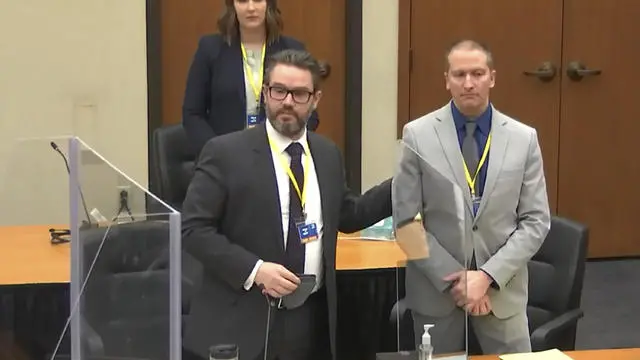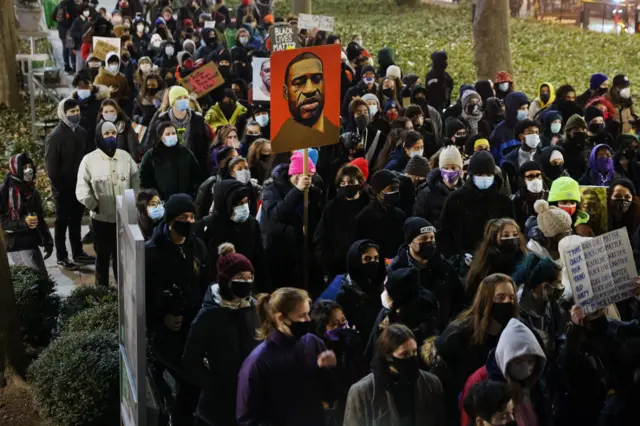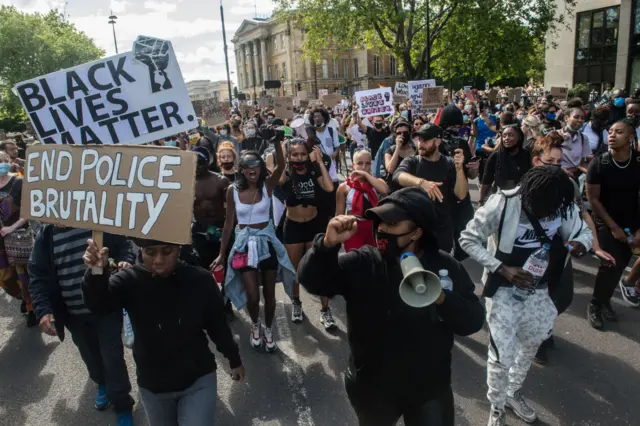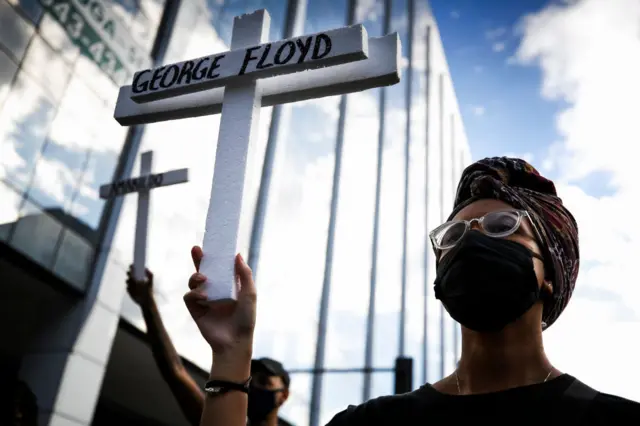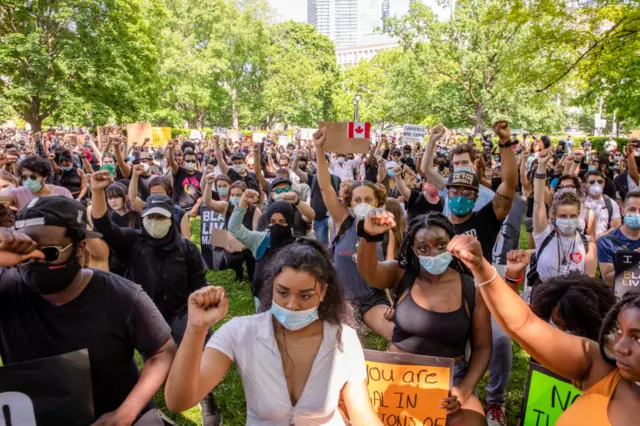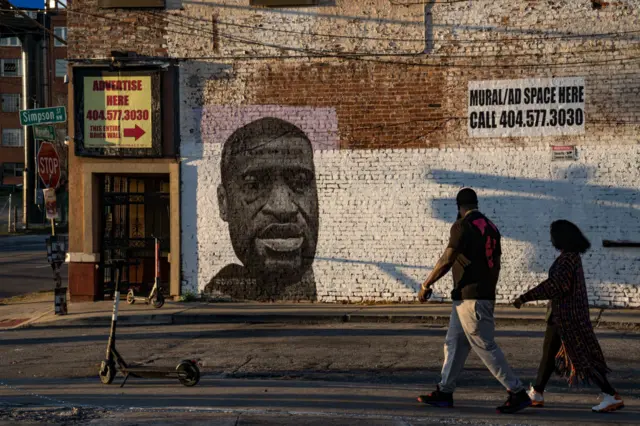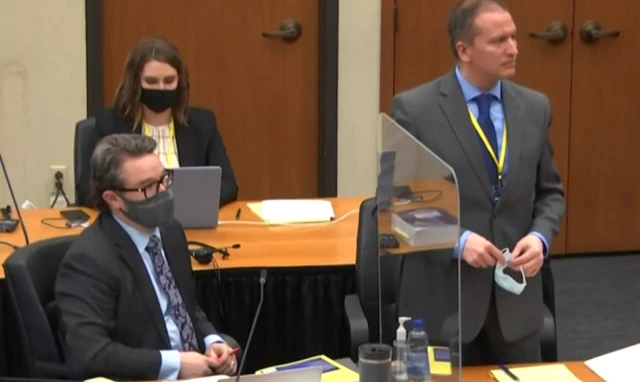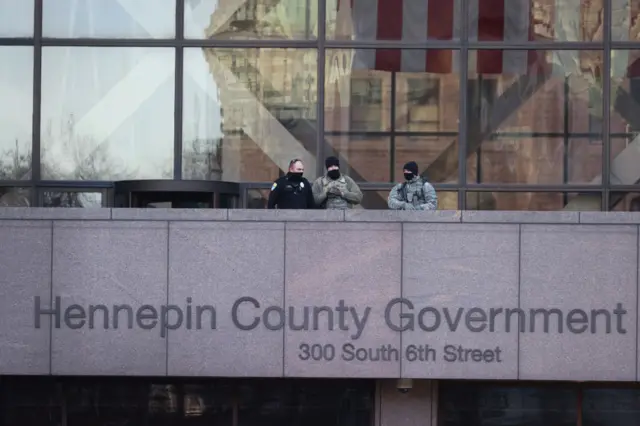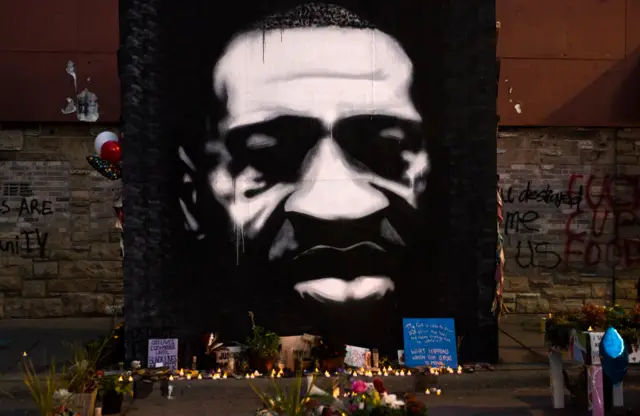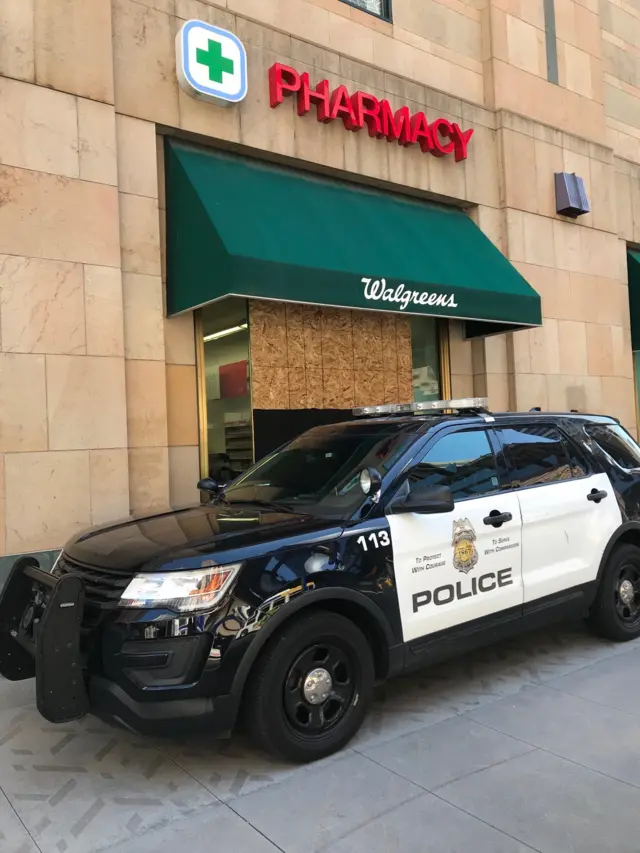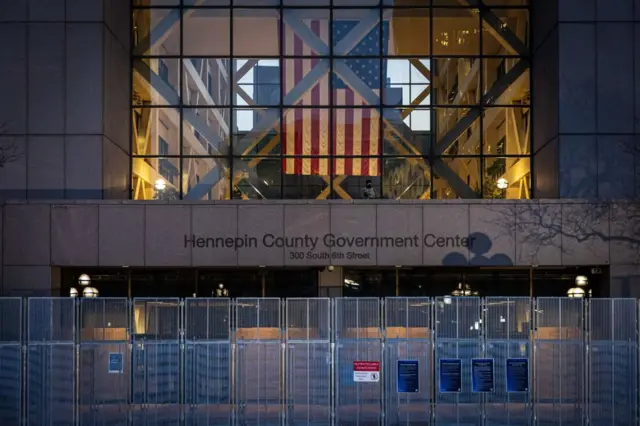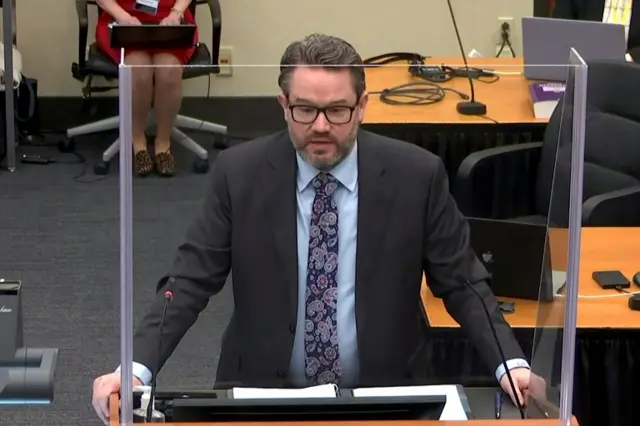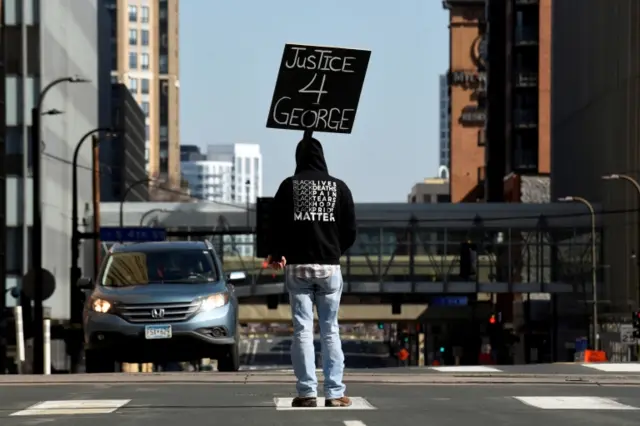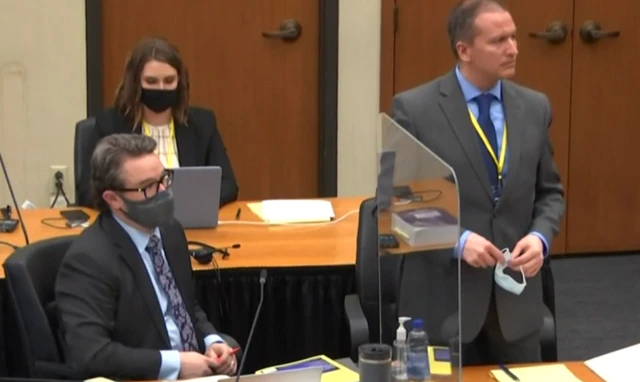What witnesses have been called?published at 15:15 BST 30 March 2021
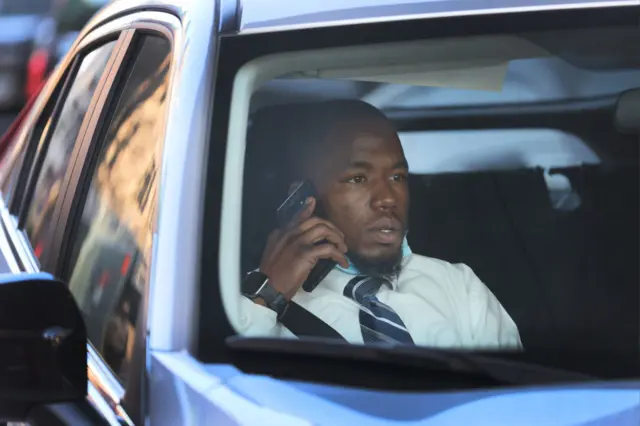 Image source, Getty Images
Image source, Getty ImagesDonald Williams was the final witness to be called on Monday
The list of potential witnesses in this case is a long one - some 400 all told, Judge Cahill has said in court.
So far, we're heard from three. Here's a quick look back at who they are, what role they played, and why they were called.
Who: Jena Scurry
Role: Police dispatcher
Why: Scurry directed authorities to Cup Foods after getting a call about a man trying to use a counterfeit bill - George Floyd. Scurry told prosecutors she became concerned while watching officers from her monitor.
"My instincts were telling me something was wrong," she said, adding that she thought her screen was frozen because of how long Derek Chauvin kept Floyd pinned to the ground.
Chauvin's defence pushed back, suggesting that Scurry could not have been able to focus fully on Floyd's arrest while in the middle of her work day.
Who: Alisha Oyler
Role: Worked across the street from where Floyd was arrested
Why: Oyler, 23, recorded several videos of Floyd being detained by police. In court yesterday she said she began filming because police are "always messing with people and it's wrong and it's not right".
Who: Donald Williams
Role: Martial arts trained fighter, witness to arrest
Why: Williams was just feet away from Chauvin as he detained Floyd. Responding to questions from prosecutors, Williams described Chauvin's hold on Floyd as a "blood choke", which he recognised from experience in martial arts. He described how Floyd said he could not breathe and gasped for air.
Today, the questioning of Williams will continue.

